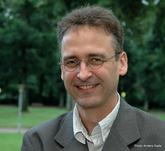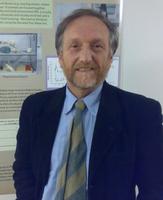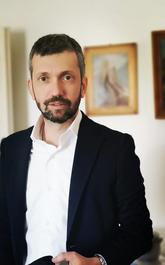About the Organizers

Martin Brüne
- Associate (“außerplanmäßiger”) Professor of Psychiatry, Ruhr-Universität Bochum, Germany.
- Research Fellow. Centre for the Mind, Australian National University & University of Sydney, Australia
- Email: martin.bruene@rub.de
- Ruhr Universität Bochum personal page
Martin Brüne graduated in medicine at the Westphalian Wilhelms University in Münster in 1988. He completed his neurology training in 1993, and his psychiatry training in 1995. His subsequent training included a Visiting Research Scientist fellowship at the Centre for the Mind, a joint venture of the Australian National University and University of Sydney. He is currently Professor of Psychiatry and Head of the Division of Cognitive Neuropsychiatry and Psychiatric Preventive Medicine at the LWL University-Hospital, Ruhr-University Bochum, Germany. Dr. Brüne has authored more than 250 articles and book chapters. He has also authored the Textbook of Evolutionary Psychiatry and Psychosomatic Medicine: The Origins of Psychopathology (2nd edn. Oxford University Press, 2016). His current clinically oriented research projects include the analysis of social cognition in psychosis and in personality disorders, the association of social cognition with social functioning and nonverbal behaviour, the behavioural performance of psychiatric populations in evolutionary game-theoretical scenarios, the effect of oxytocin on social perception and cognition in psychiatric disorders and social cognitive training in patients with psychosis, as well as mentalisation-based treatment for borderline personality disorder. He is also interested in the cross-talk between the brain and other organs, including gut-brain-interactions. Dr Brüne’s research approach is grounded in evolutionary theory, that is, how and why cognition, emotion and behaviour in psychiatric conditions relate to adaptive function of psychological traits. Dr Brüne’s interests also include cross-species comparison and psychopathological conditions in nonhuman primates. Dr Brüne is a member of several psychiatric and neuroscientific societies (Deutsche Gesellschaft für Psychiatrie, Psychotherapie und Nervenheilkunde (DGPPN), International Society for Human Ethology (ISHE), Gesellschaft für Anthropologie (GfA), and the International Graduate School of Neuroscience (IGSN), Ruhr-University Bochum. He also acts as a Co-PI in the ARC Centre of Excellence in Cognition and its Disorders, Belief Formation Program at the Macquarie University, Sydney, Australia.

Paola Palanza
- Full Professor of Applied Biology, Unit of Neuroscience, Department of Medicine and Surgery, University of Parma
- Research Director of the Laboratory of Behavioral Biology (Ethomouse) of the Department of Medicine and Surgery
- Email: paola.palanza@unipr.it
- Google Scholar personal page
Paola Palanza received a PhD in Ethology and Animal Biology at the University of Florence (Italy), postdoctoral training at the University of Venice (I) and was a recipient of a CNR-NATO fellowship for advanced research at the Division of Biology of the University of Missouri-Columbia before joining the faculty of Medicine at the University of Parma in 2000 as associate professor. Palanza’s research focuses on the analysis of gene-environment interactions in behavioral development and individual susceptibility to psychiatric disorders, with particular regard to the role of sex differences, maternal environment, endocrine disruptors, and stress. The ultimate purpose is to develop ethologically relevant animal models of psychopathology in rodents, where the goal is to identify etiological factors and replicate symptom complexes. In addition, she has several current collaborations with pediatricians, gynecologists, psychiatrists and endocrinologists on human studies in order to improve translation from preclinical research into clinical research and reverse.

Stefano Parmigiani
- Emeritus Professor -University of Parma -Department of Chemistry, life Sciences and Environmental Sutainability - Università di Parma, Italy
- Director of the International School of Ethology "Dànilo Mainardi" of the Ettore Majorana Foundation and Centre for Scientific Culture (EMFCSC) - Erice (Sicily)
- Co-director of the International School of Environment, Conflicts and MIgrations of the EMFCSC-Erice(Sicily)
- Past President of the Italian Society of Ethology (SIE)
- Email: stefano.parmigiani@unipr.it
- Google Scholar personal page
With an academic background in zoology, biology, ethology and psychology his research interest is characterized by an interdisciplinary approach ranging from Ethology, Psychobiology, Behavioral Endocrinology and Behavioral Neuroscience in the House mouse as animal models (i.e.Causations and functions of male and female mice socialaggression; Neurochemical correlates of different forms of aggression: ethopharmacological analysis of maternal aggressioninter-male attack and infanticide; Effects of prenatal exposure to drug, man -made Endocrine Disrupting Chemichals and stress on neuro-endocrine development and socio-sexual behavior of mice) and an Evolutionary Psychobiological approach to human behaviour (i.e. Relationship between personality traits, neuroendocrine responses and competition outcome in martial arts athletes; the biological origin of rituals and their proximate and ultimate causes and the analyses of obsessive compulsive rituals in psychopathology their evolutionary implication and importance for clinical setting ).
Chairman of the Environment & Health Permanent Monitoring Panels (PMP)of the International Seminars on Planetary Emergencies of the EMFCSC and he has organized several sessions (e.g. Neurobehavioral Effects of Endocrine Disrupting Chemicals: sources,amount ,ecological impact and effects on development, reproduction , brain and behavior in animals and humans “; “Epigenetic transgenerational effects of the Endocrine Disrupting Contaminants Bisphenol A; Environmental Contaminants and Children Health ; Biological and social causes of the epidemic of childhood obesity)
He has organized and directed several workshops of the International School of Ethology e.g. Ethology and Psychobiology of fear and defense (1988); Protection and Abuse of Young in Animals and Man (1990) ;); Environmental Endocrine disrupting Chemicals:neural, endocrine and behavioral effects (1995); Ethology & Biomedical Research (1998); Impact of Endocrine Disrupting Chemicals (EDCs) on Brain development and Behavior(2002) ;Individual Differences in Behavior and Physiology:Causes and Consequences (2003) Social stress: impact on Physiology and Behavior(2003) ; The obese species: Clinical and preclinical understanding of eatingand energy balance disorders( 2011) The Evolution of Morality: the Biology and Philosophy of Human Conscience (2012); What made us Humans?Biological and Cultural Evolution of Homo Sapiens (2014); Animal and Human Emotions(2016); Translational Neuroscience and Mental Disorders:bridging the gap between animal models and human condition(2016);Animal and Human Emotions(2016); Translational Neuroscience and Mental Disorders: bridging the gap between animal models and human condition (2016); Evolution and Future on Rituals, beliefs and religious minds (2018); Epigenetic in Cognition: an Evolutionary Approach (2018)); Ethology, Psychology, Psychiatry:an evolutionary approach(2019)” ;“ Sex differences, dimorphisms, divergences: impact on brain and behavior in health and disease (2019) ; Mens sana in corpore sano: psychobiological effects of physical activity (2021); Darwin in Medicine: Why evolution is relevant for research and medical practice (2022); Ethology Past Present and Future(2023); The Athletic Ape: Merging Human Evolutionary Biology with Sports Science (2023); Beyond words: Ethology of nonverbal interactions in therapeutic setting and psychiatric disorders(2024)

Matteo Tonna
- Associate Professor in Psychiatry, University of Parma (Italy)
- Email: matteo.tonna@unipr.it
- https://personale.unipr.it/it/ugovdocenti/person/15396
Matteo Tonna graduated in medicine at the University of Parma in 2002. He completed his psychiatry training in 2006. His subsequent training included a Clinical Attachment at the West Berkshire Psychiatric Service and in Prospect Park Psychiatric Hospital of Reading (UK) in 2006, a Post-graduate University Master in “First Episode Psychoses” at the University of Verona (Italy) completed in 2011 and a PhD in Neuroscience at the University of Modena-Reggio Emilia (Italy) completed in 2020.
He is currently Professor of Psychiatry and Head of the Psychiatric Clinic of the University of Parma and he has authored more than 100 articles on international scientific journals.
His principal field of interest is the evolutionary approach to classical psychopathology. His main clinically oriented research include: 1) the study of Obsessive-Compulsive Disorder (OCD) and its pattern of comorbidities from developmental years to adulthood, with the aim of unravelling the interplay between OCD, underlying psychopathological vulnerabilities (affective and psychotic dispositions) and psycho-social determinants (childhood trauma). In this regard, a particular topic of research is the study of proximate and ultimate mechanisms of ritual behavior in OCD, through a strong cross-disciplinary perspective (psychopathology, ethology and anthropology); 2) the study of the relationship between motor and language deficits in schizophrenia spectrum disorders, with the aim of elucidating the evolutionarily and developmentally trajectories linking the emergence of language to psychotic vulnerability in the human species.
Prof. Tonna is a member of several psychiatric and neuroscientific societies and Editor of different international scientific journals.